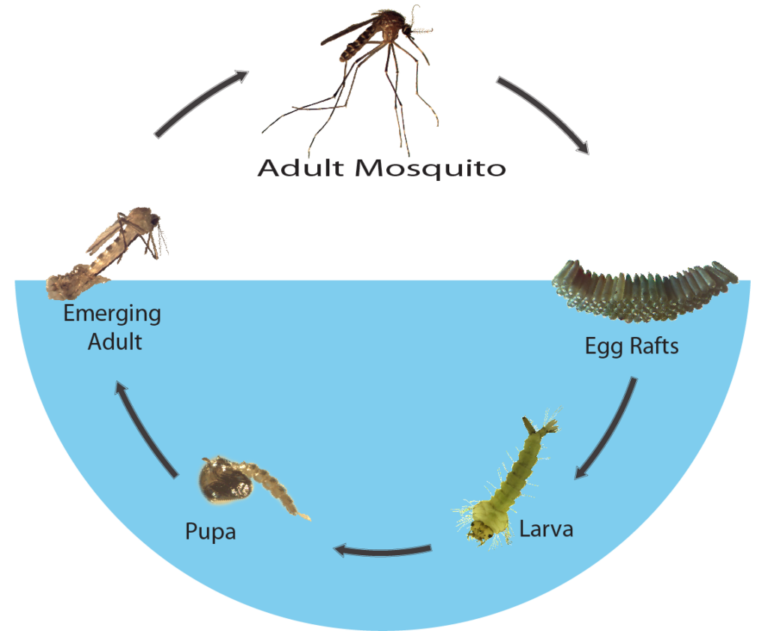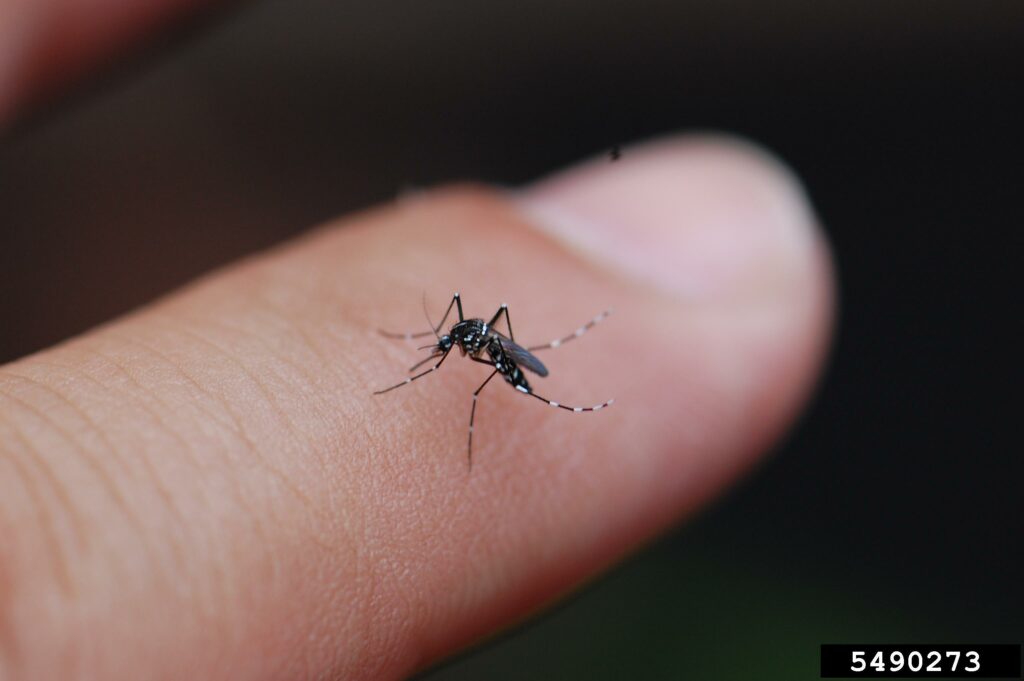Warmer Weather Brings Mosquitos Back to Life
go.ncsu.edu/readext?929759
en Español / em Português
El inglés es el idioma de control de esta página. En la medida en que haya algún conflicto entre la traducción al inglés y la traducción, el inglés prevalece.
Al hacer clic en el enlace de traducción se activa un servicio de traducción gratuito para convertir la página al español. Al igual que con cualquier traducción por Internet, la conversión no es sensible al contexto y puede que no traduzca el texto en su significado original. NC State Extension no garantiza la exactitud del texto traducido. Por favor, tenga en cuenta que algunas aplicaciones y/o servicios pueden no funcionar como se espera cuando se traducen.
Português
Inglês é o idioma de controle desta página. Na medida que haja algum conflito entre o texto original em Inglês e a tradução, o Inglês prevalece.
Ao clicar no link de tradução, um serviço gratuito de tradução será ativado para converter a página para o Português. Como em qualquer tradução pela internet, a conversão não é sensivel ao contexto e pode não ocorrer a tradução para o significado orginal. O serviço de Extensão da Carolina do Norte (NC State Extension) não garante a exatidão do texto traduzido. Por favor, observe que algumas funções ou serviços podem não funcionar como esperado após a tradução.
English
English is the controlling language of this page. To the extent there is any conflict between the English text and the translation, English controls.
Clicking on the translation link activates a free translation service to convert the page to Spanish. As with any Internet translation, the conversion is not context-sensitive and may not translate the text to its original meaning. NC State Extension does not guarantee the accuracy of the translated text. Please note that some applications and/or services may not function as expected when translated.
Collapse ▲I like this time of year. The days are getting longer, the weather is warming, and everything is coming back to life after a winter slumber. Besides the beautiful spring flowers, pests like mosquitoes are also coming back to life.
Mosquitoes interfere with outdoor enjoyment. They can transmit disease to people and animals. Most mosquitoes are active during twilight and evening hours. However, the Asian tiger mosquito is active during the day. This invasive mosquito likes to breed small rain-filled objects, ditches, and tree holes.
All mosquitoes need water to complete their life cycle. Female mosquitoes lay their eggs on the surface of water. The eggs hatch in 24-48 hours depending on water temperature. Mosquito larvae are called “wrigglers”. They get this name because they wriggle up and down from the surface of the water. Although larvae live in the water, they have to come to the surface to breathe. They cannot extract oxygen from the water like fish or other aquatic species.

Basic life cycle of the mosquito.
Source: Caymon Islands Mosquito Research & Control Unit
Most mosquito larvae feed on organic material, bacteria, and algae in the water. Adult mosquitoes emerge 10-14 days after the eggs hatch. The adults first feed on plant nectar. Mosquitoes mate one to two days after emerging. After mating, female mosquitoes search for a blood meal. Only female mosquitoes bite. Males only feed on plant nectar.
Ponds and lakes are typically not major breeding areas for mosquitoes. Fish and predatory insects (such as dragonflies) in the water keep mosquito populations in check. Ponds with excessive weeds, algae, and floating debris provide places for mosquito larvae to hide from natural predators.
The best way to reduce mosquitoes is to eliminate breeding sites. To reduce these problem spots:
- “Tip and Toss” – eliminate containers, old tires, etc. that can hold stagnating water.
- If you use barrels to collect rainwater, cover them with screening to keep out debris and mosquitoes.
- Dump excess water from dishes under outdoor flower pots.
- Flush bird bath water twice weekly.
- Store boats, canoes, and other objects so that they do not collect rainwater.
- Keep your roof gutters free of leaves and other debris that prevent water from draining.
- Fix low areas in your yard that allow rainwater to pool.
- Fill tree holes with expanding foam (not cement) to keep them from being used as breeding sites by mosquitoes.
- Be sure drainage ditches and culverts do not hold water because they are filled with debris.
Wearing long-sleeved shirts and long pants outdoors reduces mosquito bites but can be uncomfortable in warm weather. Insect repellents can provide personal protection from mosquitoes. Most mosquito repellents contain DEET (N,N-diethyl-m-toluamide).

An invasive female Asian tiger mosquito taking a blood meal.
Source: Ary Farajollahi, Bugwood.org
Area mosquito sprays target adult mosquitoes. Outdoor backpack or hand-held foggers will kill mosquitoes in the general area and keep other mosquitoes away for several hours. Products that control mosquitoes are also toxic to many other insects, including beneficial ones (such as ground beetles, lady beetles, lacewings, and honey bees). These products can be highly toxic to fish. Be careful when treating near decorative fish ponds. Modifying or eliminating breeding sites is the best long-term solution to severe mosquito problems. Remember, when using pesticides, always read and follow the label.
If mosquito larvae are found in small areas such as garden pools, bird baths, or water troughs for horses, use “dunks” or granules that contain the bacterium Bacillus thuringiensis israelensis or “Bti”. The bacteria kills mosquitoes, but does not harm fish, birds, or other wildlife. This will control mosquito larvae for about 30 days. If the small sites are not harboring larvae, then treating the standing water is a waste of time and money.
Electrocutor traps (“bug zappers”) are not effective in reducing mosquito populations. Less than ¼ of 1% of the insects “zapped” are biting insects of any type. The majority of the insects killed in electrocutor traps are actually beneficial in some form. Electronic mosquito repellers that emit high frequency sound to “repel” mosquitoes have not been shown to be effective either.
If you have questions about mosquito control or any other agricultural questions, please contact the N.C. Cooperative Extension, Caldwell County Center (828-757-1290) or visit us online at caldwell.ces.ncsu.edu.
# # #
Seth Nagy is theN.C. Cooperative Extension, Caldwell County Center director.
The N.C. Cooperative Extension, Caldwell County Center, 120 Hospital Ave.,
#1 in Lenoir, provides access to resources of N.C. State University
through educational programs and publications.




